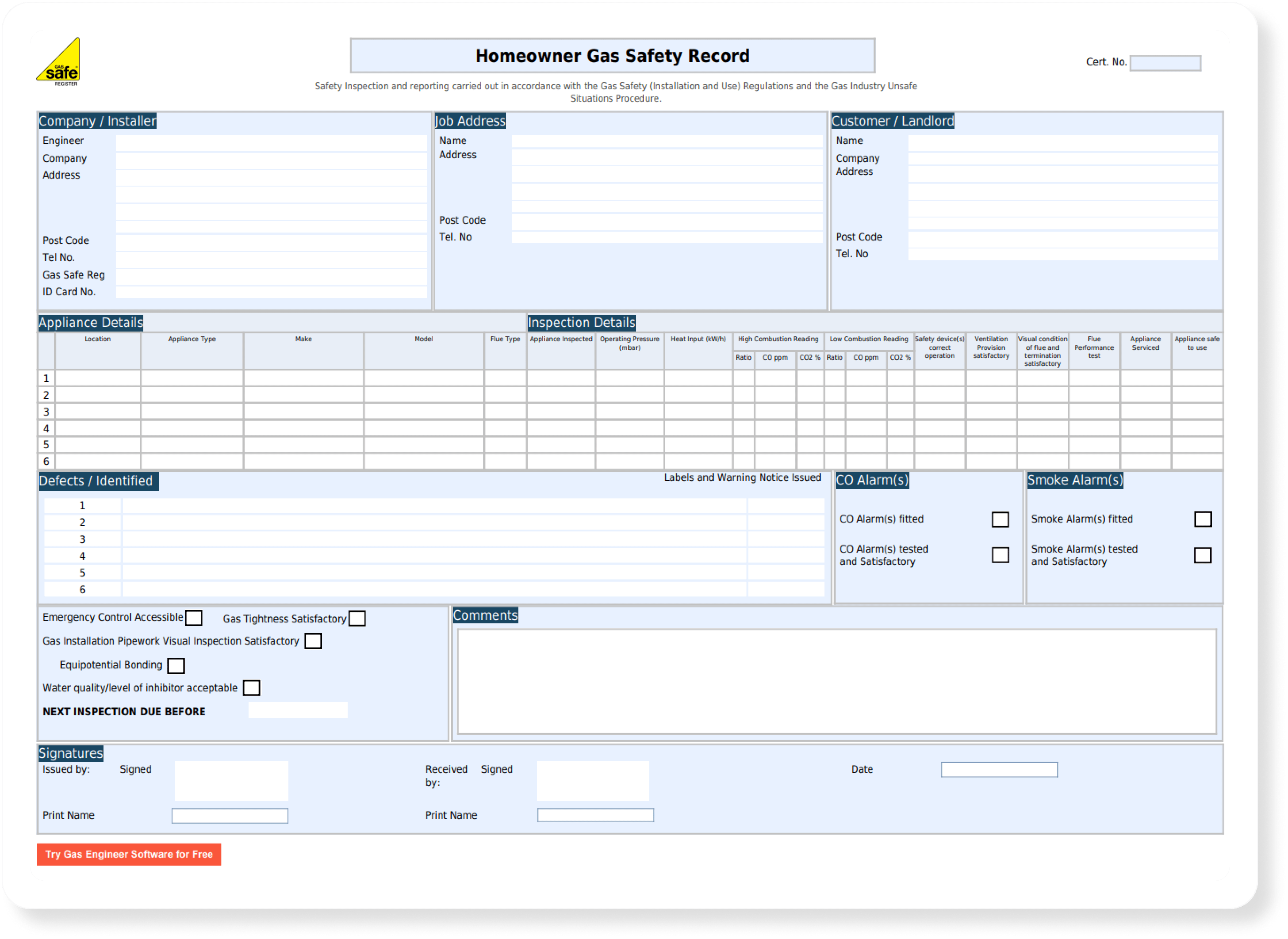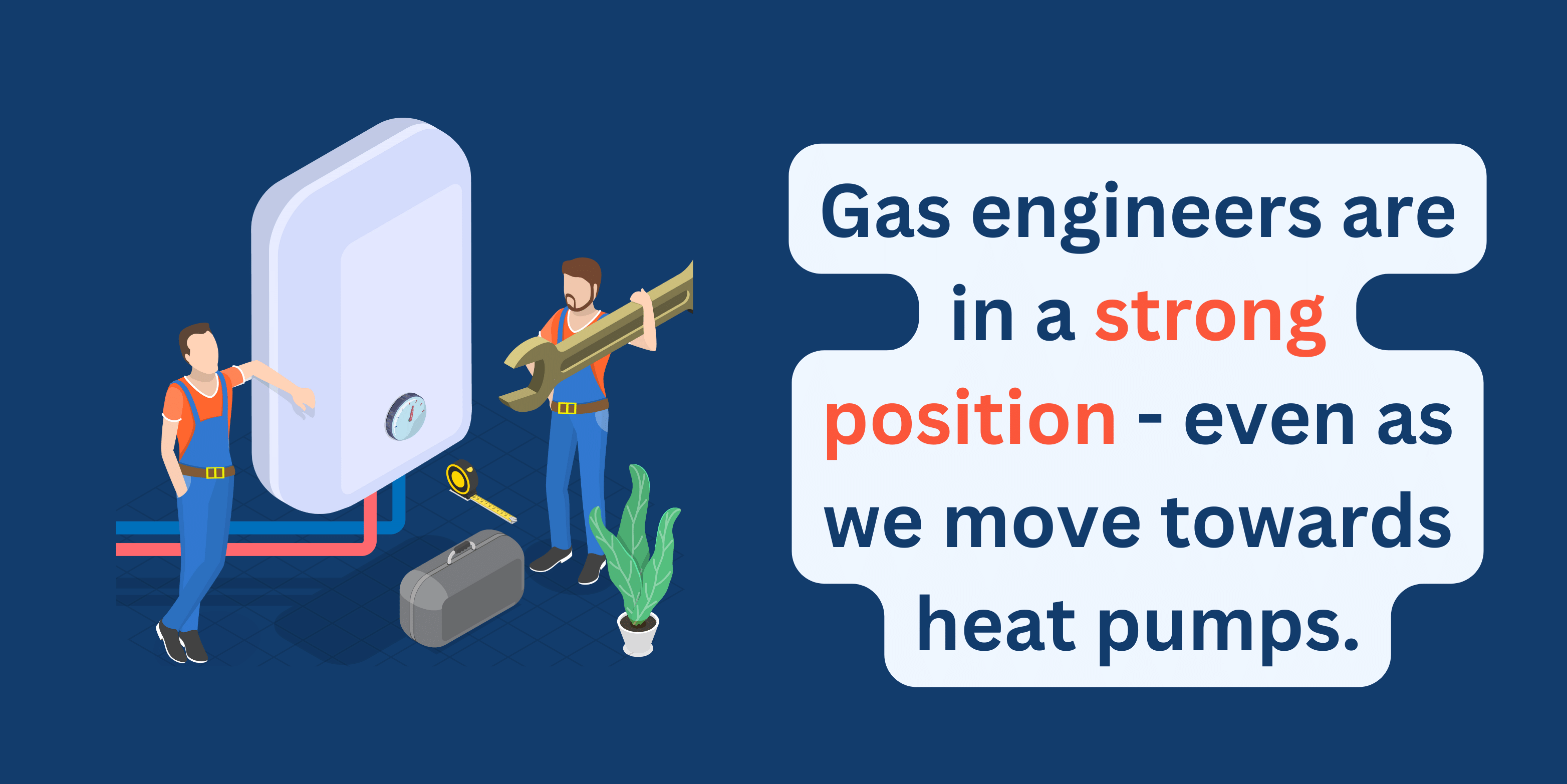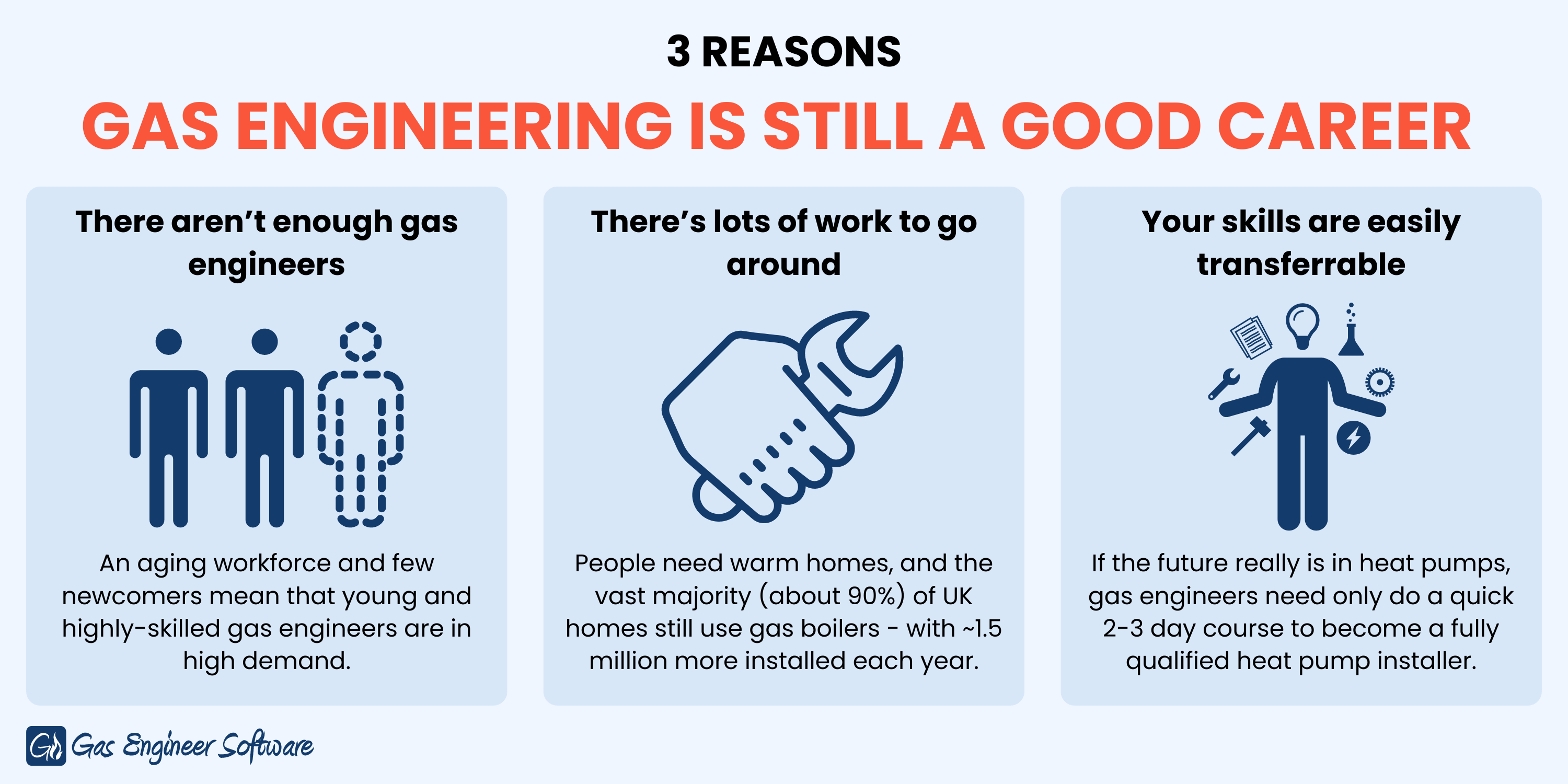3 Reasons The UK Needs More Gas Engineers
![[Featured Image] Gas engineering career](https://gasengineersoftware.co.uk/wp-content/uploads/2024/04/Featured-Image-Gas-engineering-career.png)
The gradual shift towards greener and more sustainable heating solutions has made some people question whether being a gas engineer is a good career choice.
Fortunately, in this case, the world isn’t so black and white. There are several smaller details going on behind-the-scenes which make the career still a very viable and respected profession.
For one, gas boilers aren’t going anywhere just yet. Gas engineers also happen to be in the best position to retrain and start installing their replacement. These two facts alone make becoming a gas engineer a solid good career choice – but there’s many more.
Keep reading to learn more about the future of the industry and what role gas engineers will play in it.
What’s the future of the gas industry?
Anyone reading this article will likely know all about the Government’s push for heat pumps as a replacement for gas boilers. Their goal of 600,000 installations per year by 2028 has consistently made headlines in the industry since it was introduced.
You might think from this that gas boilers are all but being phased out – but that’s not quite the case.
To this day, 23 million homes in the UK are heated by gas boilers and about 1.5 million more are still being installed each year. That’s upwards of 23 million boilers that will need servicing, repairs, and ongoing maintenance for at least the next few decades.
While it’s true that heat pumps are rising in popularity with a growing number installed every year, they aren’t free of problems themselves. The Government’s goal is going to be a hard one to meet without the proper infrastructure, which many suggest is simply not there yet. There’s also all the backlash in heating installer circles about the viability of heat pumps in the first place. Many cite poor insulation in older UK homes as a reason against retrofitting heat pumps.
All in all, it’s safe to say that while gas boilers might not be the ideal ‘heating solution of the future’, they’re not going anywhere overnight. And, even as they are (very slowly) phased out, gas engineers are still in a very strong position.
3 reasons you should still become a gas engineer
In short, the steady flow of work for gas engineers is going nowhere for the foreseeable future. And, even after that, gas engineers are well positioned to transition into alternate heating methods like heat pumps.
There are three main reasons for this:
1) There’s a shortage of gas engineers
Gas engineers were the fourth most in-demand trades job, according to a study conducted by metals4u. With a steady flow of jobs and too few to do the work, becoming a gas engineer is a safe bet whether you want to find work as an employee or start your own business.
This doesn’t look to change any time soon, either: the gas industry is dominated by an old workforce nearing retirement with over half more than 55 years old.
It’s also an industry dominated by a workforce nearing retirement age: over 50% of gas engineers are over the age of 55.
2) There’s high demand for work
Before any luxuries, people want a warm home. Gas engineers are needed to install and service the boilers in 90% of UK homes.
On top of this, the Government has even delayed phasing out fossil fuel boilers until 2035 for certain homes (some even completely exempt). In other words, they’re likely to stick around for some time.
In any case, Gas Safe Registered engineers are needed to decommission old gas boilers for any replacement to be installed. And, better yet, they’re in the best position to train to become a heat pump installer and capture this demand.
Heating & plumbing business owners just need to make sure they’re making the most of this demand through proper marketing & lead generation strategies.
3) As a heating engineer, you aren’t limited to gas or oil boilers
Lots of the skills you learn in becoming a gas engineer are transferable.
In a cold climate like the UK, there will always be a market for heating solutions – even if it isn’t a gas boiler.
Heat pumps are the main contender at the moment, and gas engineers are only a short 2-3 day course away from being qualified to install them.
And yes, there is a lot scepticism around heat pumps, but as Mark Krull from Logic4Training points out:
“Prices will come down, there will be new ways of tackling issues, and manufacturers are going to develop new products and solutions to meet the problems we’re facing now”.
Read more about becoming a heat pump installer or download a free Heat Pump Service Sheet PDF template here.
“The steady flow of work for gas engineers is going nowhere“
Addressing some common misunderstandings…
- Many people think gas boilers will be banned from 2025. This is not the case, as the ban only applies to new builds.
- There will also be no fines for getting new gas boilers after this date, and customers have no obligation to switch after 2025.
- Lastly, some believe training as a heat pump installer is a complex and difficult process. In reality, many of the qualifications can be carried over from gas engineer training.
How much do gas engineers earn?
Gas engineers earn a very respectable salary. Estimates place the average starting salary for a gas engineer at around £32,000, and this can easily increase to around £60,000 with more experience.
However, of the 140,000 gas engineers in the UK, an estimated 50% work for themselves. If you can grow a successful business this figure can very easily reach higher numbers.
Do you want to be starting your own business?

Becoming a gas engineer is a good option for anyone that has plans to go out on their own. And, unlike some other trades industries, there are plenty of tools out there to make this a very real possibility.
For example, Gas Engineer Software is an all-in-one job management system specifically designed for heating and plumbing companies.
Save hours each week keeping all of your quotes & invoices, certificates, scheduling, and customer details in one place – accessible any time, anywhere.
Read more about the benefits of an all-in-one software system, or click below to learn more about Gas Engineer Software.
Next steps:
If you’ve been thinking about implementing software into your workflow to save time, here’s what you can do next:
- Visit our resources centre where you'll find more articles like this one and our free gas rate calculator.
- Start a free trial to see exactly how our software works for your business.
- Watch our video demo to get an idea of how our software works. You can also book a 1-on-1 session with our customer success team for a more personalised experience.
- Know an engineer who's still using paper? Help them and us out by sending our software their way!



